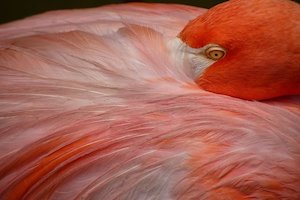“Sometimes you have to live in precarious and temporary places. Unsuitable places. Wrong places. Sometimes the safe place won’t help you. …I have noticed that doing the sensible thing is only a good idea when the decision is quite small. For the life-changing things, you must risk it.”
–Jeanette Winterson, Why Be Happy When You Could Be Normal?
Without a knowledge of mythology much of the elegant literature of our own language cannot be understood and appreciated.
–Jeanette Winterson, Why Be Happy When You Could Be Normal?
— Thomas Bulfinch, who died in 1867

Are We Losing Our Abilities To Read Deeply?

Beyond self-inflicted attention deficits, people who cannot deep read — or who do not use and hence lose the deep-reading skills they learned — typically suffer from an attenuated capability to comprehend and use abstract reasoning. In other words, if you can’t, or don’t, slow down sufficiently to focus quality attention — what Wolf calls “cognitive patience” — on a complex problem, you cannot effectively think about it. – National Affairs
How Did Renaissance Architects Build Church Domes Without Columns? High-Tech Analysis Has Found The Answer
The broad cupolas in Italian churches of the era were constructed by laying bricks in a “complex cross-herringbone spiraling pattern” called a double loxodrome, according to a team of engineering researchers at Princeton and the University of Bergamo. – Artnet
Boy, 12, followed down mountain by brown bear BBC. Excellent coaching by (presumably) parents and admirable cool-headedness. Running from a brown bear (this looks like a Euro grizzly cousin) = self-identification as prey.
21ST CENTURY PARENTING, OR THE LACK THEREOF: Dad Starts YouTube Channel of Tips for Kids Growing Up Without Dads of Their Own.
'No single point of accountability' for Ruby Princess situation, former Border Force boss says
The former head of Australian Border Force, Roman Quaedvlieg, says authorities should have managed the Ruby Princess cruise ship differently
“In many ways, Spinoza is now replacing Kant and Descartes as both the compass and the watershed of modern thought” — Clare Carlisle (KCL) and Yitzhak Y. Melamed (JHU) on Spinoza on God and nature
“It really bothers me to see philosophers who have thought about this stuff for about a minute or two, begin to pontificate as if they knew it all, as if they didn’t have to do any work. It’s so arrogant” — Talia Mae Bettcher (Cal State LA) is interviewed at What Is It Like To Be A Philosopher?
We’ve all had to puzzle over such profound matters as birth, death, regret, free will, agency, and love. How might philosophy help us think through these vital concerns? In On Being Me, renowned moral philosopher J. David Velleman presents a concise, accessible, and intimate exploration into subjects that we care deeply about, offering compelling insights into what it means to be human.
From Knausgaard to Lerner to Heti, we’re plagued by goodness — as if readers were scandalized by immoral characters in fiction
